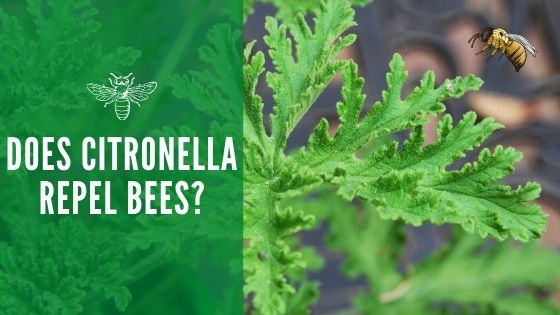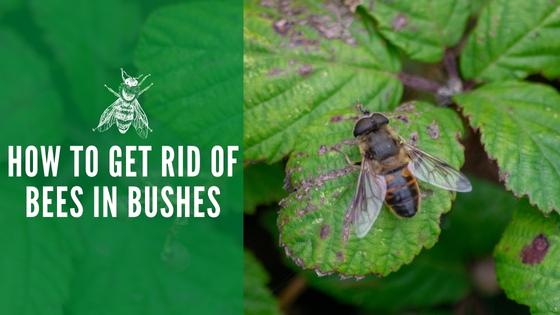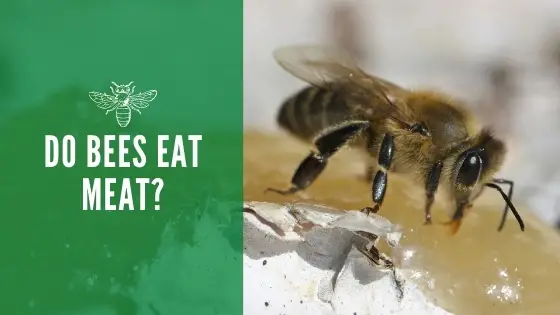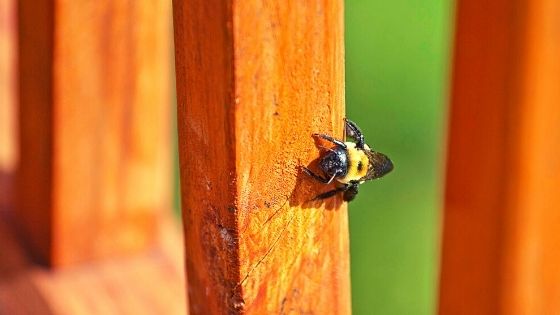Does Citronella Repel Bees?

Whenever you find that you have bees buzzing around your house and yard, it can get so annoying that you decide to find a way to repel them.
Even though most bees aren’t that dangerous and will not sting you if you do not approach them, they can still be a danger and a source of worry for many people.
While using pesticides, bug spray, and other chemically based repellents can work, some people prefer to take a more natural approach to keep the bugs away.
Oils like citronella can not only repel bees but it keeps them safe and flourishing in our ecosystem.
What Insects Does Citronella Repel?
The “citronella plant” is not only beautiful, but it also comes with a lovely citrusy-based scent. Citronella is the name for two different types of plants that come from the genus Cymbopogon. These are citronella grass (also known as lemongrass) and scented geranium.
The citrus-like scent of the citronella plant can repel mosquitoes, but it doesn’t do so on its own. The scent that the mosquitoes hate is only released whenever it is touched, so you need to crush the leaves and rub them on your skin or use citronella oil-based products for the best results as a repellant.
The plant can repel mosquitoes, although it isn’t as effective as traditional bug spray. Will it do the same for bees? The answer is yes! The smell is bad enough to repel gnats, moths, flies, roaches, bees, fleas, ticks, ants, and wasps, especially when it is in oil form.
Does Citronella Oil Repel Bees?
Yes, it does, and dealing with rubbing oil on your skin can be much easier than crushing leaves and hoping that that works for you. Just a few drops can provide a heavy scent to your skin, sending the bees moving away.
You can also use a citronella candle to repel bees, giving you not only the scent of the citronella as a repellent, but the bees won’t like the smoke either! Smoke dazes and confuses bees, so they tend to get as far away from it as possible.
A 2020 study showed that using citronella to repel bees is not only effective but keeps the bees safe. Bees play an important role on this planet, so we must use alternatives to deadly pesticides.
What Kind Of Plants & Flowers Do Bees Hate?
Bees might be pollinators, but they are very picky. Some flowers are ones that they are never going to land on or pollinate, and those are the flowers you want to get in your yard if you want to keep the bees away.
Mint
Mint is one of the plants that bees hate due to its strong scent and natural essential oils from the plant. It’s very overpowering, so they will stay away without much of a fight! You can create a perimeter of mint for your yard and garden, and in addition to the bees being repelled, you can also have mint to garnish your meals!
The peppermint plant and essential oil are also effective for repelling bees.
Wormwood
Wormwood is another plant that acts as a natural insect repellent. The grand wormwood variant doesn’t just act as a base for absinthe, but it also can be used as a repellent in both plant and oil form. Either mix the oils with water and spray around your yard or plant the wormwood plant around your garden.
Pitcher Plants
The pitcher plants are carnivorous plants that won’t deter bees and wasps. Instead, they will devour them! The pitcher plants lure bees and wasps into the flower and then cause them to fall into water and drown.
Once the bugs are dead, they are digested. If you want a more permanent solution to your bee problem, carnivorous plants are it!
Geraniums
If you manage to get a bunch of red geraniums and place them inside of your yard, then you’ve hit the jackpot. The bees cannot see the color red, and they also contain little pollen for the bees to use for pollination. They also repel bees with their scent and only need about 4-6 hours of full sun every day.
Marigolds
Marigolds are a popular plant for gardens because, in addition to keeping bugs away with their scent, they also flower really well. These plants will not keep away the honeybees seeking the flower’s nectar, but they will repel wasps. Marigolds are very durable and don’t need a lot of care. For a wasp problem, you can’t go wrong with getting a ton of marigolds.
Other Ways To Repel Bees
Strong scents from repellants and flowers aren’t the only thing that can repel bees and wasps. You can try to wear light-colored clothing, which is easier for bees to see so they won’t perceive you as a threat. You can also try to lure the bees to focus in a different direction.
For example, if you are having a picnic in one area of your yard, set up some discarded food scraps at the other end of the yard closer to where the bees are. They’ll go for that food rather than trying to disturb you.
Finally, the best way to repel bees is to give them their space. Remember that bees can be very beneficial to you and your garden, and they often don’t attack humans unless they perceive you as a threat. Be non-threatening and resist the urge to strike at the nearest bee, and you should be fine.
Get Started With Natural Bee Repellent
Whether you use oils, flowers, smoke, or food, you can repel bees and wasps naturally and humanly. Make sure to do some research to figure out how effective your repellent is, and then stick with it. After a while, the bees will be repelled and go somewhere else or stay in their hive.
If any of the plants or oils listed above do not work repelling your carpenter bee, honey bee, or bumble bee problem, you should contact a qualified pest control professional and find out if they have any natural repellent solutions.



